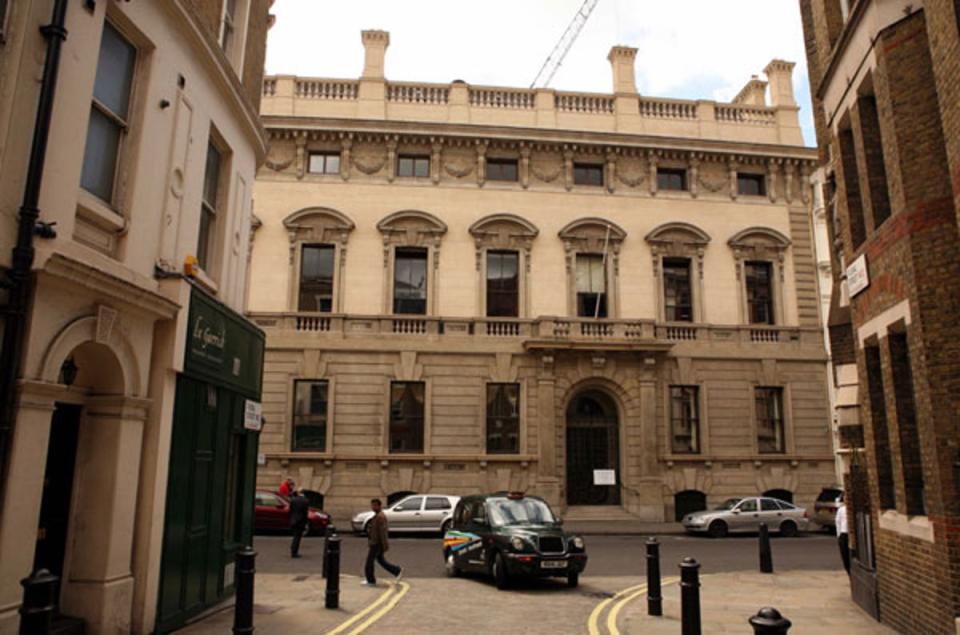Head of MI6 and cabinet secretary quit private Garrick club over female members row
The head of MI6, Sir Richard Moore, and the cabinet secretary, Sir Simon Case, have resigned from the private Garrick Club amid ongoing controversy over its refusal to accept women as members, The Independent has learned.
A number of other members, including senior public figures, are also said to be considering leaving the historic London club if it refuses to change its stance on keeping the membership men only. The club, based in Garrick Street, was founded in 1831 and is one of the oldest members’ clubs in the world.
The high-profile departures of Sir Richard and Sir Simon follow the publication in The Guardian of the club’s membership list, which included people in the higher echelons of the political and judicial establishment, as well as the King.

It is believed Sir Richard had told the club last year that he wanted to resign because of its stance on women members. He was, however, persuaded to stay on after being told that a vote would be held on the issue, which has become increasingly contentious, this year.
There has, however, been uncertainty about the timing of the vote, and also whether a demand by reformers for a change in voting procedure allowing a simple majority to decide on the issue of women members (rather than the current requirement of 66 per cent) would take place.

Sir Simon’s resignation from the Garrick came on Wednesday, 24 hours after he defended his being a member of the club while appearing before a Commons committee.
Labour MP Liam Byrne asked Sir Simon whether he could “foster a genuine culture of inclusiveness” in the civil service “while being a member of an all-male club”. He replied “I have to say, my position on this one is clear, if you believe profoundly in reform of an institution, by and large it is easier to do if you join it and make the change from within rather than chuck rocks from the outside.
“And by the way, maths is also part of this. Every one person who leaves who is in favour of fixing this antediluvian position, every one of us who leaves means these institutions don’t change.”
In the same sitting, Committee Chairman, Sir Bernard Jenkin asked fellow MP Sir Robert Buckland, the former Justice secretary if he wanted to “declare an interest” as he too was named as a member. “Yes I do, and I do so,” Sir Robert responded.
Sir Simon has faced calls for him to resign from senior female figures in public life including Jill Rutter, now with the think tank British Future, and Hannah White, director of the think tank the Institute for Government.

The cabinet secretary decided to resign after being in contact with the club management to clarify a number of points about the vote on membership. Other members are believed to be in similar correspondence.
Britain’s security and intelligence services – MI6, MI5, and GCHQ – as well as the military, have long run campaigns on gender and ethnic diversity.
Sir Richard pledged to end all-male shortlists for the appointment of his successor. MI5, the Security Service, has had two female directors-general in its 113-year history: Stella Rimington in 1992, followed by Eliza Manningham-Buller in 2002. Ms Rimington was the first security service chief to be officially identified after her photograph was published in The Independent and New Statesman.
MI6, the Secret Intelligence Service, has never had a female chief in its equally long history. Sir Richard, known as ‘C’ in the Service, who has been in his post since 2020, said last year: “I will help forge women’s equality by working to ensure I’m the last C selected from an all-male shortlist.”
All three of its directors-general, including the director of strategy, the head of overseas operations, and the head of technology, known as ‘Q’, after the fictional counterpart in James Bond films and books, are now female.

